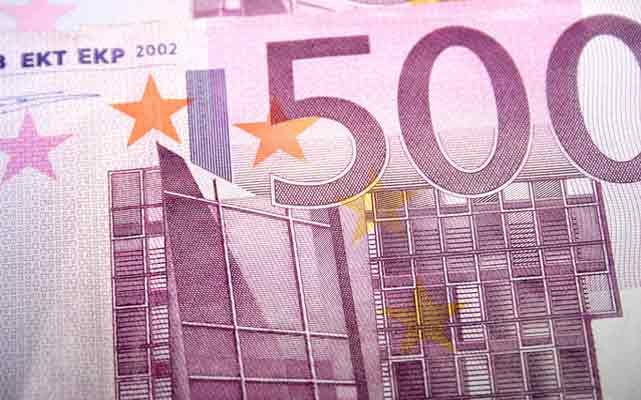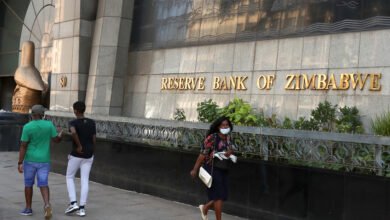Pound to Euro Week Ahead Forecast: Can Three-Week Best Hold for Buyers?

STORY LINK Pound to Euro Week Ahead Forecast: Can Three-Week Best Hold for Buyers?

Foreign exchange analysts at CIBC expect the Pound to Euro exchange rate (GBP/EUR) to strengthen to 1.19 at the end of the second quarter.
MUFG expects risk conditions will be important; “the current favourable low volatility market conditions for carry trades that favour the pound more than the euro.”
GBP/EUR was unable to make any headway early in the week, but strengthened to 3-week highs just above 1.1750 on Friday before settling just below this level.
The Pound was boosted by favourable risks conditions, but a key question is whether this will be sustainable.
Unicredit is still forecasting a GBP/EUR decline to 1.14 at mid-year.
Chancellor Hunt delivered a further 2% cut in National Insurance rates from April, but this measure had been released ahead of time and there were no significant surprises in the statement.
A reduction in National Insurance rates will help underpin spending power, but the overall tax burden will still increase and there was no net upgrade in the OBR GDP growth forecasts with the economy still unable to make significant headway.
The overall market impact was notably limited and macro data over the next two weeks are likely to have a greater impact.
CIBC expressed limited optimism over the UK outlook; “A more constructive growth backdrop, a looser fiscal stance, and still relatively restrictive monetary policy suggest Sterling is on course for modest gains through 2024.”
HSBC, in contrast, remains cautious over the UK outlook; “We think that the main driver of the likely weakness for the GBP is the slow but clear pivot by the BoE towards a more dovish stance. The UK still faces a challenging inflation-growth mix, making it hard for the BoE to remain a more hawkish outlier in the G10 space. As the BoE catches up on the dovish side with other central banks, the GBP could face more downward pressure in the months ahead.”
Bank of America expects yield spreads to underpin the Pound; “The BoE will likely be the last of the major CB [central banks] to start cutting and will likely move slower, at least vs the ECB. We see a risk the BoE cuts rates by 25bp per meeting after Aug, but this could have short legs: we think faster cuts in 2024 could be followed by a long pause down the line or, under some circumstances, even some small reversal of the move.”
The ECB made no change in interest rates at the latest policy meeting with the refi rate held at 4.5%.
Goldman Sach expects steady interest rate cuts from mid-year; “We maintain our forecast for a 25bp cut in June followed by back-to-back 25bp cuts to 2.25% in March 2025.”
J P Morgan noted the rhetoric from bank President Lagarde and commented; “This effectively shuts the door on April and opens it for June, but only as a possibility. Hence, on the basis of the current data, a cut will likely be discussed in June, but whether the ECB will move will still depend critically on what the incoming data actually look like. As a result, the path for rates remains entirely data-dependent.”
The core inflation forecasts were revised lower to 2.6% for 2024, 2.1% in 2025 and 2.05in 2026, in line with the ECB target.
According to MUFG; “Overall, the updated forecasts suggest that upside risks to the inflation outlook are judged to have eased further over the forecast horizon. It should make the ECB more confident that inflation will continue to slow back towards their target.”
MUFG added; “While there was no strong signal that a rate cut was imminent in the updated policy statement, President Lagarde signalled in the press conference that the first rate cut was more likely to be delivered in June rather than at the next policy meeting in April.”
The bank expects some near-term Euro relief; “With an earlier April rate cut appearing even less likely now it is helping to ease downside risks for the euro in the near-term.
It still expects Pound gains over the medium term; “However, we continue to recommend a short EUR/GBP trade recommendation which should benefit in the coming months from the ECB beginning to cut rates ahead of the BoE.
Latest data recorded an increase of 1.0% in German industrial production for December after a downwardly-revised 2.0% decline for November.
ING commented; “What we take from the first batch of hard data for the German economy in 2024 is the picture of an economy that is bottoming out but still stuck between cyclical and structural weakness. Currently, an imminent rebound still looks unlikely, even if there is some vague light at the end of what increasingly looks like a very long tunnel.”
International Money Transfer? Ask our resident FX expert a money transfer question or try John’s new, free, no-obligation personal service! ,where he helps every step of the way,
ensuring you get the best exchange rates on your currency requirements.
TAGS: Pound Euro Forecasts
Source link






